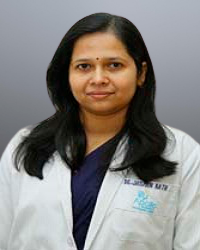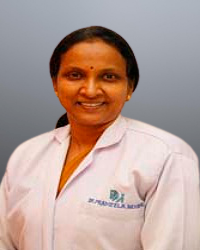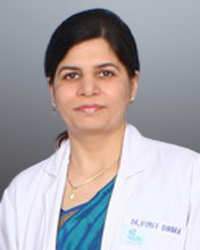Search Result: 9

Dr Jasmin Rath
MBBS; MD (Obstetrics & Gynecology) Specialist in High Risk Pregnancy and Laproscopy,Trained in Laproscopy,Infertility & USG WHI intiative Laproscopy Training
Registration No
524868
Language
English, हिंदी, ଓଡ଼ିଆ, తెలుగు

10 years experience overall

Jubileehills & kondapur , Hyderabad
MON- SAT, MON- SAT(12:15 PM-03:45 PM)

Dr Prameela Sekhar
MBBS,DGO,DNB
Registration No
45063
Language
English, हिंदी, తెలుగు

28 years experience overall

Jubileehills & Jubileehills & kondapur , Hyderabad
MON- SAT, MON- SAT(01:30 PM-02:30 PM)

Dr Sudha Madhuri
MBBS,DGO,MRCOG
Registration No
765400
Language
English, हिंदी, తెలుగు

15 years experience overall

kondapur , Hyderabad
MON- WED, FRI, SAT(10:30 AM-01:30 PM)

Dr Suneetha Gudipati
MBBS, MD, OBG, OSM, MRCOG (UK)
Registration No
81172
Language
English, हिंदी, తెలుగు

15 years experience overall

kondapur , Hyderabad
TUE(01:30 PM-03:00 PM)

Dr Vimee Bindra Basu
MBBS, MS(Obs& Gynecology), MHA, FICOG
Registration No
505892
Language
English, বাংলা, हिंदी, ਪੰਜਾਬੀ, తెలుగు

11 years experience overall

Jubileehills , Hyderabad
MON- SAT, MON- SAT(10:00 AM-02:00 PM)

Dr Madhavi Latha Munagapathy
MBBS, DGO, DNB
Registration No
594180
Language
English, हिंदी, తెలుగు

11 years experience overall

Madeenaguda , Hyderabad
MON- SAT(10:30 AM-12:00 PM)

Dr Neeraja Valli
MS OBG
Registration No
2915506
Language
English, हिंदी, తెలుగు

11 years experience overall

Jubilee Hills , Hyderabad
MON- SAT(11:00 AM-02:00 PM)

Dr Pavan Kumar
DNB ( Obstetrics and Gynaecology )
Registration No
2915492
Language
English, हिंदी, తెలుగు

7 years experience overall

Jubilee Hills , Hyderabad
MON- SAT(09:00 AM-10:00 AM, 02:00 PM-03:00 PM)

Dr Tayi Yamuna
MBBS, MD, D.G.O (Obstetrics & Gynaecology)
Registration No
539359
Language
English, हिंदी, తెలుగు

39 years experience overall

A S Rao Nagar , Hyderabad
MON, TUE | WED | THU- SAT(11:30 AM-11:40 AM, 11:45 AM-01:00 PM | 11:30 AM-11:50 AM, 12:00 PM-01:00 PM | 11:30 AM-11:40 AM, 11:45 AM-01:00 PM)
Frequently Asked Questions for Fibroid Removal in Hyderabad
Yes, it is possible to conceive and have a baby after fibroid surgery. However, the outcome may depend on the extent of surgery, the location of fibroids, and individual fertility factors.
Fibroids can potentially regrow after surgery, but the likelihood and timeframe vary for each individual. Regular follow-up visits with your doctor can help monitor any potential regrowth.
Generally, fibroids larger than 3 cm in diameter or causing significant symptoms may require surgery. The decision to perform surgery for fibroids depends on various factors, such as symptoms, location, and impact on fertility.
While each case is unique, fibroid surgery, or myomectomy, is generally considered a major surgical procedure since it involves removing fibroids from the uterus. It may require anaesthesia and a hospital stay.
Yes, gynaecologists are trained in women’s reproductive health and qualified to perform fibroid surgery or myomectomy.
Gynaecologists, or gynaecologic surgeons, are trained to remove fibroids. They have expertise in performing surgical procedures specifically related to the female reproductive system.
Eligibility for fibroid removal depends on the presence of one or more fibroids in the uterus, the severity of symptoms, the desire for future fertility, overall health, and the size and location of the fibroids. Your doctor will assess your condition to determine if you need this procedure.
The duration of fibroid removal surgery can range from 1–4 hours depending on the size, number, and location of the fibroids, as well as the type of surgery.
Hospitals is renowned for its gynaecological services and has a team of experienced gynaecologists and gynecologic surgeons who perform Fibroid Removal surgeries with excellent post-operative care.
After fibroid removal, you may experience mild to moderate pain and discomfort. Your doctor may prescribe pain medications and recommend rest and avoiding strenuous activities for a few weeks. Follow-up appointments need to be scheduled to monitor your recovery.
Preparation for fibroid removal may include diagnostic tests such as ultrasound or MRI to determine the size and location of the fibroids. Your doctor may also advise you to stop certain medications or follow a specific diet prior to the procedure.
The recovery time from fibroid removal typically takes about 2–6 weeks. During this time, patients may experience mild discomfort, fatigue, and vaginal bleeding.
The success rate of fibroid removal ranges from 80 to 95% in terms of symptom improvement and reduction in fibroid size. However, it depends on the size and location of the fibroids, the surgical technique used, and individual patient factors.
To find the best doctors for fibroid removal, you can ask for referrals from your primary care physician or gynaecologist. You can also do research online, read patient reviews, and consider the doctor’s experience, credentials, and patient satisfaction ratings.
Doctors who specialise in fibroid removal procedures can perform this surgery. They are trained to diagnose and treat gyaencological conditions related to the female reproductive system.
Fibroid removal, also known as myomectomy, is a surgical procedure to remove fibroids from the uterus. It can be done through open surgery or minimally invasive techniques to relieve symptoms like heavy menstrual bleeding, pelvic pressure, and pain.
A doctor who performs fibroid removal should be a qualified gynaecologist or gynaecologic surgeon. They should have expertise in performing surgical procedures for fibroids and managing related complications.
Related Procedures in Hyderabad
- Doctors for Hysterectomy in Hyderabad
- Doctors for Mastectomy in Hyderabad
- Doctors for C-section in Hyderabad
- Doctors for Medical abortion in Hyderabad
- Doctors for Myomectomy in Hyderabad
- Doctors for Adhesiolysis in Hyderabad
- Doctors for Hysteroscopic Polypectomy in Hyderabad
- Doctors for Diagnostic Laproscopy in Hyderabad
- Doctors for Fibroid Removal in Hyderabad
- Doctors for Laparoscopic Assisted Vaginal Hysterectomy in Hyderabad
- Doctors for Removing Uterine Polyps in Hyderabad
- Doctors for Total Laparoscopic Hysterectomy in Hyderabad
- Doctors for Diagnostic Hysteroscopy in Hyderabad
- Doctors for Ovarian Cyst Removal in Hyderabad
- Doctors for Hysteroscopic Myomectomy in Hyderabad
- Doctors for Tubal Ligation in Hyderabad
- Doctors for Breast Surgery in Hyderabad
Related Treatments in Hyderabad
- Doctors for Ectopic Pregnancy Treatment in Hyderabad
- Doctors for Endometriosis Treatment in Hyderabad
- Doctors for Hirsutism Treatment in Hyderabad
- Doctors for Lichen Planus Treatment in Hyderabad
- Doctors for Menopause Treatment in Hyderabad
- Doctors for Polycystic Ovary Syndrome Treatment in Hyderabad
- Doctors for Sexually Transmitted Diseases Treatment in Hyderabad
- Doctors for Urinary Incontinence Treatment in Hyderabad
- Doctors for Uterine Fibroids Treatment in Hyderabad
- Doctors for Uterine Prolapse Treatment in Hyderabad
- Doctors for Vaginitis Treatment in Hyderabad
Other Specialities in Hyderabad
- Best Urologist in Hyderabad
- Best Pulmonologist in Hyderabad
- Best General Physician in Hyderabad
- Best Endocrinologist in Hyderabad
- Best Cardiologist in Hyderabad
- Best Oncologist in Hyderabad
- Best Radiologist in Hyderabad
- Best Orthopedics in Hyderabad
- Best Hepatologist in Hyderabad
- Best Gynecologist in Hyderabad
- Best Dermatologist in Hyderabad
- Best Gastroenterologist in Hyderabad
- Best Psychologist in Hyderabad
- Best Ent Specialist in Hyderabad
- Best Nephrologist in Hyderabad
- Best Rheumatologist in Hyderabad
- Best Diabetologist in Hyderabad
- Best Psychiatrist in Hyderabad
- Best Neonatologist in Hyderabad
- Best Dentist in Hyderabad
- Best Dietitian in Hyderabad
- Best Haematologist in Hyderabad
- Best Pediatrics in Hyderabad
- Best General Surgeon in Hyderabad
Top Hospitals in India
- Hospitals in Ahmedabad
- Hospitals in Bangalore
- Hospitals in Bhubaneswar
- Hospitals in Bilaspur
- Hospitals in Chennai
- Hospitals in Delhi
- Hospitals in Guwahati
- Hospitals in Hyderabad
- Hospitals in Indore
- Hospitals in Kolkata
- Hospitals in Madurai
- Hospitals in Mumbai
- Hospitals in Mysore
- Hospitals in Nashik
- Hospitals in Noida
- Hospitals in Visakhapatnam
- Hospitals in Lucknow
- Hospitals in Bhopal
- Hospitals in Karur
- Hospitals in Kochi
- Hospitals in Nellore
- Hospitals in Trichy
- Hospitals in Kakinada
© Copyright 2024. Apollo Hospitals Group. All Rights Reserved.
 +91 8069991061
Book Appointment
+91 8069991061
Book Appointment






 Call Now
Call Now









